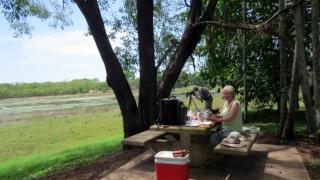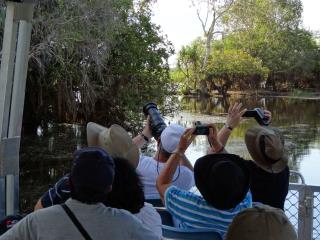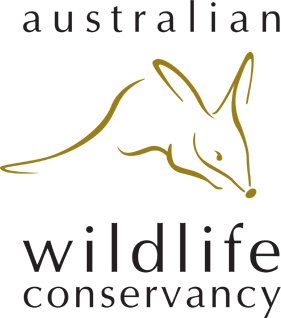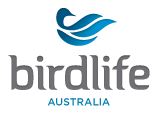Conservation and Bird Watching Ethics
Edmund Selous (1857-1934), a British ornithologist and the first person credited with coining the term 'Bird Watching', was a strong proponent of non-destructive bird-study as opposed to the collection of skins and eggs. In his book Bird Watching (Selous, 1901) he said:
"For myself, I must confess that I once belonged to this great, poor army of killers, though happily, a bad shot, a most fatigable collector, and a poor half-hearted bungler, generally. But now that I have watched birds closely, the killing of them seems to me as something monstrous and horrible; and, for every one that I have shot, or even only shot at and missed, I hate myself with an increasing hatred.
I am convinced that this most excellent result might be arrived at by numbers and numbers of others, if they would only begin to do the same; for the pleasure that belongs to observation and inference is, really, far greater than that which attends any kind of skill or dexterity, even when death and pain add their zest to the latter.
Let anyone who has an eye and a brain (but especially the latter), lay down the gun and take up the glasses (binoculars) for a week, a day, even for an hour, if he is lucky, and he will never wish to change back again. He will soon come to regard the killing of birds as not only brutal, but dreadfully silly, and his gun and cartridges, once so dear, will be to him, hereafter, as the toys of childhood are to the grown man."
Edmund Selous
(1857-1934)
Even though birding doesn't impact nature as negatively as say shooting or fishing, one still has to take care not to disrupt the natural habitat. Following is an outline of issues presented by Birds Australia that bird watchers and nature lovers need to be aware of.
BIRD WATCHING ETHICS
Based on 'Guidelines to Recreational Bird Watching' adopted by Birds Australia and produced with their permission.
Rationale
1. Recreational bird watching and tourist activities, if not conducted with care and consideration, can have a negative impact on the environment.
2. The activities of professional or amateur ornithologists who are working on recognised research projects are not considered directly here as they are covered by research guidelines.
3. Positive impacts from nature based tourism include:-
-
- Increased appreciation of the natural environment
- Better understanding of issues related to conservation
- Economic benefit for locals, creating greater incentives to value and protect the environment
- A healthy outdoor activity for participants
4. Negative impacts from nature based tourism include:-
-
- Disturbance to species or individuals especially when feeding, courting, resting or nesting
- Damage to the environment caused by overuse or carelessness
- Drawing attention to species which may be desirable to illicit wildlife traders
- Careless or unauthorised access to private property which may result in damage or loss to the owner
- Accidental introduction of alien species (eg weeds, pathogens, feral animals)
5. Operators of commercial and club- based tours are in an ideal position to educate the public on the potential impact of their activities.
6. Birds Australia members should be aware of the potential impact of their activities and lead by example by taking steps to minimise the impact of their own activities.
Birdlife Australia Policy Statement
All bird watchers have a responsibility to be informed about their activity, to avoid causing any negative impact on the birds they are watching and where possible, to contribute to the future wellbeing of birds and the environment.
Individuals and small groups
1. To be fully informed about the birds being watched requires an awareness of the ecology of the species including feeding, roosting and breeding activities and the conservation issues which affect the survival of the species. With this knowledge bird watchers are able to observe without impacting negatively on the birds.
2. Practise minimal impact bushwalking, camping and driving as outlined by conservation departments at state and national level. These recommendations are seen as minimum standards for responsible behaviour in the bush.
3. When beach walking watch for and avoid ground-nesting birds.
4. Be informed about the location being visited. Do not enter restricted areas. Respect the rights of all land owners, including traditional owners, and do not enter private land without permission. Obey the laws governing access to the area being visited.
5. Be aware that species which have value to the illicit bird trade may be more vulnerable than their numbers suggest. Frequent visits to a nesting site can attract the attention of natural and human predators in search of eggs or nestlings.
6.Record observations and contribute them to information repositories such as wildlife atlases, NT birds group, etc. This adds to personal enjoyment and knowledge as well as placing valuable information in the public domain.
7. The use of playback can distress the species whose call is being played and may disrupt feeding or breeding activity. Calls should not be played for extended periods and never at louder volume than that of the target bird. Use of playback should be kept to a minimum, especially in areas of high visitation, or where its use has occurred in the recent past. Responsible use of playback can be valuable in locating cryptic birds without serious harm, however, it is a skilled activity and should not be taken lightly.
8. Spotlighting disturbs individual birds and animals which may be sleeping or resting and may interfere with the night vision of nocturnal species. Effects of spotlighting have not been well studied; however it is possible that dazzling by spotlight may leave some birds more susceptible to predation or damage itself due to temporarily impaired vision. If using a spotlight on wildlife, keep the time the animal is held in the spotlight to a few seconds rather than minutes. Lower intensity spotlight, red filters and directing the light to the side of the subject will reduce discomfort.
9. Providing artificial water and food supplies has the potential to increase some species at the expense of others. Populations which rely on an artificial food source may be unsustainably high and suffer if the food supply ceases. Such feeding can also facilitate the spread of disease.
10. Photography provides a way of increasing public appreciation, understanding of birds and their habitat, and is enjoyable and satisfying to the photographer, but restraint must be exercised. The following guidelines will ensure the well being of the subject:-
-
- Every effort should be made to ensure the subject is not stressed in any way
- Particular care is required when photographing nesting birds which may abandon the nest as a result of disturbance from the use of hides, camera flashes, sounds and frequency of visits.
- Never 'garden' the area around the nest by removing branches or other objects which may block a clear view to the nest, as this will increase the the exposure of nesting birds to weather and the likelihood of predation.
- Under no circumstances modify the nest or its approaches in order to force the bird into a more photogenic position.
- At the first signs of stress by the bird, back off!
Commercial and Group Bird Watching
1. In order to provide a satisfying experience for their clients, which does not damage the location being visited, ecotourism operators should:
-
- Seek to impart accurate information to their clients so that appreciation and respect for the places visited is enhanced
- Promote an understanding of the area visited and the issues which affect the management and long term protection of the area
- Help clients understand the factors which have resulted in rare and endangered species having small or limited populations and ranges and what is necessary to ensure the long term survival of the species
2. When the opportunity arises or when the tour operator can incorporate such activities in the tour, then the operator should:
-
- Involve their clients in activities which have a positive impact on the location being visited (e.g. Voluntary conservation works)
- Encourage participants to record observations, which may contribute to the overall understanding of the area being visited
- Use local businesses to provide services for the tour group and be seen to support local services and by so doing, give local communities an incentive to conserve their natural environment
Birdlife Australia Policy Statement - EcotourismCommercial and group tour operators have an obligation to promote ethical birding and to educate their clients on the issues pertaining to the conservation of birds.
Ecotourism is nature-based tourism that involves interpretation of the natural and cultural environment and ecologically sustainable management of natural areas. As such, it is socially responsible and fosters environmental appreciation and the enjoyment of nature while having minimal environmental impact. The educational element, which enhances understanding of natural environments and ecological processes distinguishes it from adventure travel and sightseeing.
Feel free to download and print this document in pdf format Ethical Birding Guidelines from Birdlife Australia






